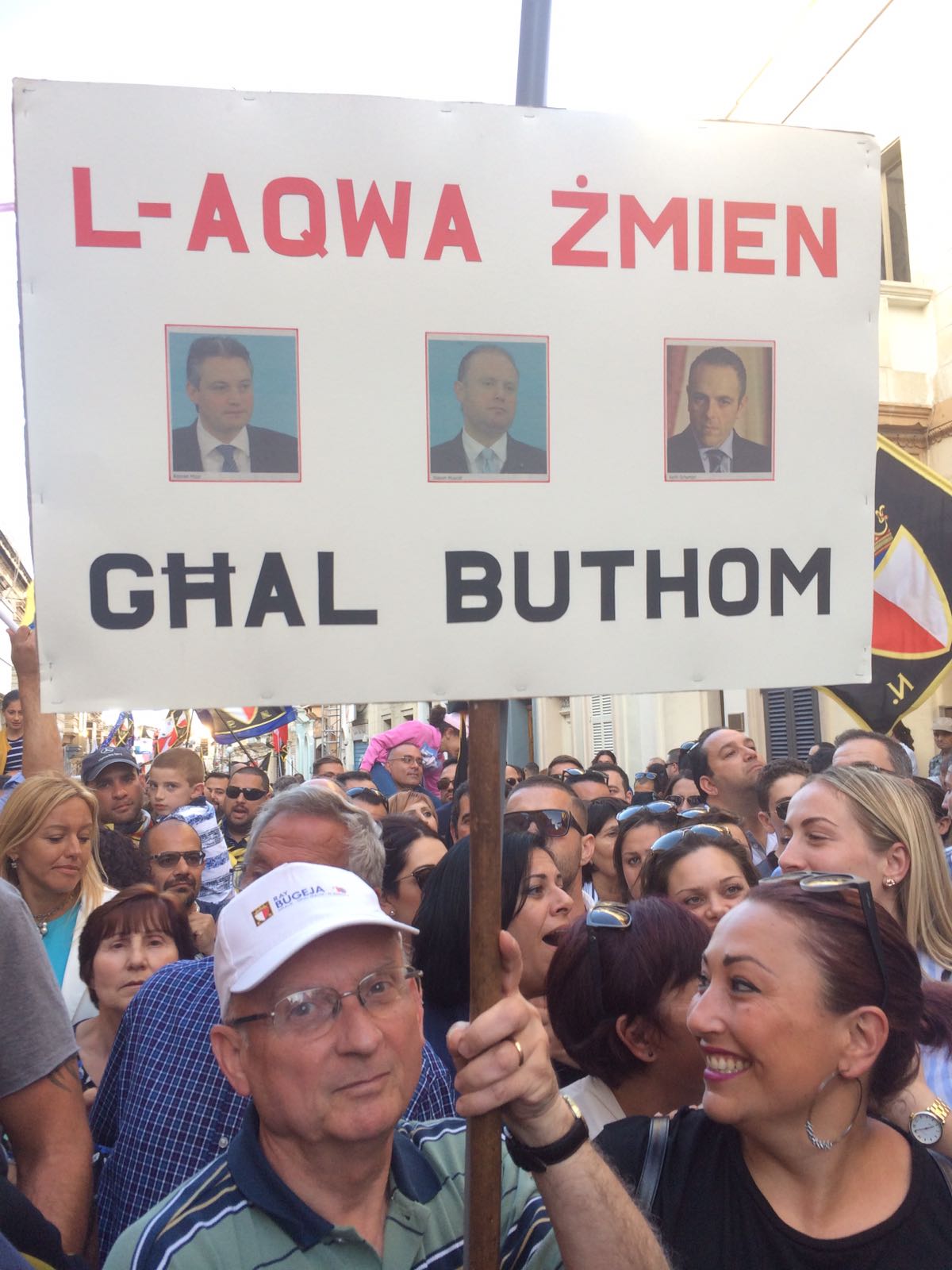GUEST POST: Every seat on every flight counts
This guest post has been written by a Maltese man who has lived in England for many years.
A post earlier today on this website encouraged Maltese voters resident abroad to overcome any difficulty to fly back and vote on 3 June. I write to endorse that view.
I have lived in the UK permanently for decades, returning regularly throughout. I write from the perspective of someone who, by choice and temperament, has never owed allegiance to any single political party in Malta, (where I have long since lost my right to vote), or in the UK, where I have voted for all the three major parties, depending on what appeared to be the pressing needs of the country at successive elections.
I have never stopped observing the political scene in Malta, now much easier than it was given the immediacy of the internet, dispassionate as to party but with a passionate wish that the same thriving democracy I live in here in the UK be shared by family and friends back home.
Had I still a vote, why would I pay the money, get the leave of absence from work, find and pay for a flight and go back to Malta to vote? Here’s why, from the perspective of someone who, though resident in the UK, shares blood, background, culture, food and family with Maltese living in Malta.
2013 brought promise – there is no point in denying it. For the first time, Malta had a prime minister born into after the landmark year of 1964. For the first time, voters floated in droves free of family fealties; violence was put aside and bitterness gave way to a new inclusivity. On cue as Malta approached its fiftieth birthday as an independent state, it seemed about to free itself at last from all the old hang-ups that had kept Maltese society so deeply divided in the run-up to Independence and in the terrible decades that followed it.
But four short years have delivered a betrayal of those hopes of almost unimaginable proportions. While an economy whose foundations were laid by previous administrations has not been trashed, nothing new has been added to the national portfolio, other than the disreputable sale of EU citizenship.
While divorce, introduced prior to 2013, was rightly followed by the introduction into legislation of more inclusive family structures, the divisive Party Wall was erected higher and stronger, with merit counting for nothing and political obedience counting for all. Finally and above all, the moral compass of the land was shamelessly destroyed by example: with corruption at the core of the State, and the institutions designed to check it cowered or beaten into submission, nothing mattered anymore, whether you were at the top of the pile or not.
Malta was deprived of its left-of-centre party, a decent staple in every Western democracy, through the deliberate action of four or five people whose behaviour was enabled by utterly spineless support in Parliament.
The polls are, like birds’ entrails of old, difficult to read. There is nothing new or Maltese about that, as recent events elsewhere, including in the UK last year, have shown. The stand-out figure in the latest Malta Today poll is that 22.6% of the electorate are undecided, are not voting or have declined to answer the pollsters’ questions.
That is a high proportion which means several things: neither of the two large parties have it in the bag; the difference of 3.6% between the two major parties is within the recognised margin of error; and, above all, every SINGLE vote counts, as even the usually confident Joseph Muscat was keen to point out at his Sunday mass meeting.
But why should Maltese electors who live away from Malta care enough to make the arrangements to fly back to Malta and vote? Because they are lucky enough to have a vote in Malta; because they have family who still live there; because they are typically only temporarily living away from the island, having retained their right to vote by remaining resident in Malta but being away for a time for work or study; because they are therefore extremely likely to be going back – to what? To another five years of what we have seen in the last four?
Has anyone thought to ask why Muscat has reneged on his 2013 pledge to introduce remote voting for those who are living away from Malta on polling-day? The excuse that it was in the Opposition’s 2013 programme as well is plain silly: the Nationalist Party in Opposition was not in a position to deliver on its electoral pledges. The Labour government was, but chose not to.
Why not? The answer is obvious to anyone who has experienced true European democracy for any period: that lively experience almost always gives you distance from partisan allegiance and therefore sharpens your critical faculties, making you part of the awkward squad likely to treat corruption with contempt – and vote accordingly. Why fly these troublesome voters over, or give them postal votes, or provide booths in embassies when you shrewdly guess that they’re going to give you an answer you don’t want?
There you have it: several reasons for getting that flight, spending that money, getting that leave of absence from your employers. The strongest reason is that Joseph Muscat doesn’t want you to come back and vote, because the likelihood is that you will be voting against him, or at least, not for him. Muscat now recognises that every vote for his Panama-Labour Party matters (to him), but then so does every vote against it.

